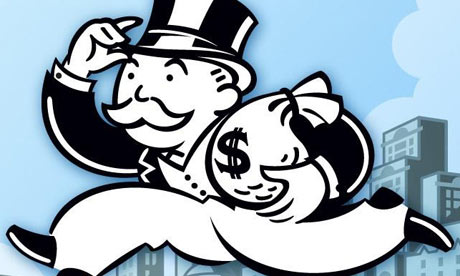A quick book bash: I wasn’t going to write about Philip Roth’s The Plot against America, which I read a few weeks ago, until seeing C.S.A tonight crystallized my problems with it. I should say up front that I run hot and cold on Roth — I quite liked Portnoy and American Pastoral, but kinda loathed Goodbye, Columbus. And, while The Plot Against America is getting good reviews all around, I had a strongly adverse reaction to it. For those of you who haven’t heard anything about it, Plot describes an alternate USA in which famed aviator and rabid isolationist Charles Lindbergh defeats FDR in 1940, makes peace with Hitler, and begins a pogrom of sorts against Jewish-Americans, forcibly enrolling Jewish children (including the narrator’s brother) in Americanization programs and, eventually, attempting to relocate Jewish families to the Midwest. As per Roth’s usual m.o., the tale is told from the perspective of a Newark family trying to find their way — not very successfully — amid the deteriorating events.

As alternate histories go, it’s a great idea for a book, and I was really looking forward to seeing what Roth did with it. But, unlike CSA, which clearly showed an attentiveness to both what happened and what might have happened, Roth here has written an alternate history without seeming to give a whit about the history. In short, I found the book stunningly, almost narcissisticly, myopic. One gets the sense from reading Plot that the rift beween Jews and Gentiles in America was not only the most significant but the only ethnic or cultural schism in FDR’s America. This is not to say anti-semitism wasn’t rampant and widespread at the time — Of course it was, as attested by Father Coughlin, Breckinridge Long, and Lindbergh himself, who — in a speech that tarnished his reputation much more than Roth lets on — blamed support for the war on the “large ownership and influence [of Jews] in our motion pictures, our press, our radio, and our Government.” But, in The Plot Against America, no one else seems to even exist besides Jews and (White) Gentiles — To take the two most notable examples, there’s no mention of the fact that Africans-Americans were being lynched in staggering numbers in this period (the only lynching mentioned is that of Leo Frank), or that we actually did intern Japanese-Americans during the war. (As a point of contrast, C.S.A.‘s central thesis is about slavery, but it moves beyond white-black relations to explore, or at least reference, the place of Asians, Latinos, and gay Americans in the new Confederate system.)
This isn’t about tokenism — it’s about doing justice to the people and the history of the period you’re writing about. And, frankly, the history in The Plot Against America strains credulity time and time again. I’ll skip over the final twist so as not to give it away, and because it’s so ridiculously implausible that Roth couldn’t have intended for us to take it seriously. But, even despite that, Lindbergh’s popularity — and the public’s taste for isolationism — by 1940 seem significantly overstated throughout. (To take one example, there is no way that the Solid Democratic South would up and vote GOP that year — With the Civil War only recently out of living memory, the Dems could’ve run a wet paper bag in the South, so long as it wasn’t of the party of Lincoln and didn’t threaten to upset the Jim Crow racial order. That didn’t even begin to change until Strom in ’48.) And, while Walter Winchell plays a large role here in calling out the Nazi-American pact and resulting Jewish pogrom, he seems to be the only public figure in America doing so. Where’s everyone else? It doesn’t make sense.
Finally (and I’ll admit, this really ticked me off), Plot basically commits a character assassination of progressive/isolationist Burton Wheeler of Montana, who here appears as Lindbergh’s Vice-President (or, more to the point, his Cheney — I’m assuming that’s what Roth was getting at.) At a certain point in Plot, we’re supposed to believe that Wheeler — a guy who refused to prosecute alleged dissenters as Montana Attorney General during the hysteria of WWI, helped lead the investigation into the government corruption of Teapot Dome, and turned on FDR because he thought court-packing was an unconstitutional powergrab — is going to, out-of-the-blue, declare martial law and start rounding people up? That makes zero sense, and is, in effect, a slander on a real historical figure. Roth is obviously one of America’s most gifted writers — but, lordy, I thought The Plot Against America needed more research, more attention to historical nuance, and more sense that injustice and suffering in this country has often run along more than one axis of discrimination.


